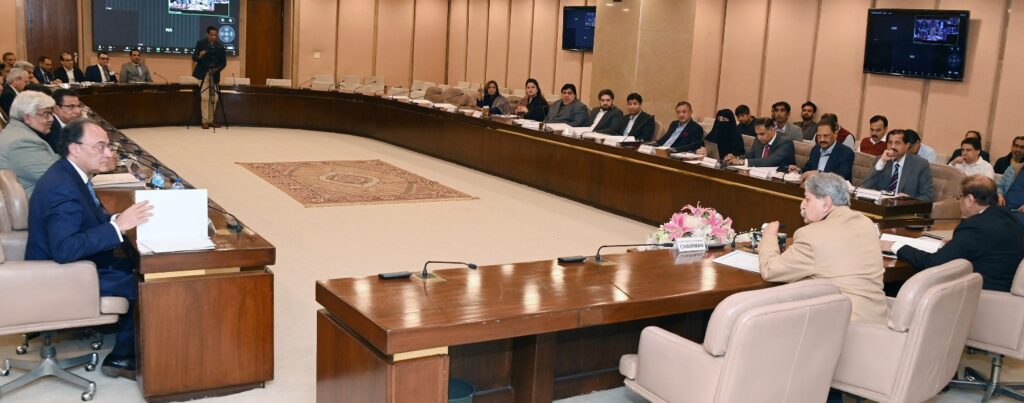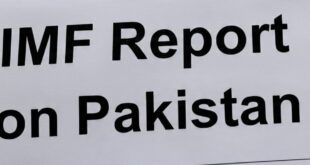
The IMF program includes 22 structural benchmarks, 18 of which the federal government is required to implement, while the State Bank is responsible for the remaining four. The government is prohibited from offering any tax exemptions or issuing net supplementary grants. In the gas sector, the supply of gas to capacity power plants must be terminated.
Finance Minister Mohammad Aurangzeb said this while briefing the National Assembly Standing Committee on Finance & Revenue that the international community has urged Pakistan to continue implementing reforms.
He emphasized that, in addition to improving governance, it is crucial to combat corruption. He acknowledged that implementing reforms is challenging but added that Pakistan would sign a ten-year program with the World Bank aimed at reducing poverty and addressing climate change.
The meeting, chaired by Naveed Qamar, took place in Islamabad. The Finance Minister requested that the meeting be held in-camera. Committee member Nafisa Shah argued that all matters related to the IMF are well-known and should be shared openly. She opposed the in-camera session, stating that the public should be informed about the discussions. Chairman Naveed Qamar responded that the government is handling some sensitive matters.
During the briefing, the Finance Minister shared that the majority of meetings were held in Washington, and two credit rating agencies had upgraded Pakistan’s rating. He noted that Pakistan’s efforts had been praised worldwide, with the international community urging the country to continue implementing reforms. Along with improving governance, combating corruption is crucial. He acknowledged that reforms are not easy but stated that the government is working to improve the economic situation through a collaborative approach.
He highlighted the need to address issues in the tax and energy sectors and tackle the population crisis. If the 40% stunting rate in children is not controlled, the situation will not improve. He also noted that many girls are still out of school.
The Finance Minister further reported that the current account has been in surplus for the last three months. The country’s foreign exchange reserves are now sufficient to cover 2.5 months of imports, and by March-April, they will be enough for 3 months. He mentioned that inflation had decreased to below 5% in November and that interest rates had been reduced by 7% this year. The industrial sector is recovering, and the private sector is borrowing again for investment. While food prices have fallen, further steps are needed to reduce the cost of pulses and chicken.
Secretary of Finance, Amjad Allah Bosal, briefed the committee that the IMF program includes 22 structural benchmarks, 18 of which must be implemented by the federal government, and 4 by the State Bank. The government is not allowed to offer tax exemptions or issue net supplementary grants. In the gas sector, the supply to capacity power plants must be discontinued. These benchmarks were also part of previous programs. The government can no longer borrow from the State Bank.
A national financial agreement has been made with the provinces, under which they will increase their tax revenues and reduce their expenditures. Provincial officials, like their federal counterparts, will be required to disclose their asset details.
During the committee meeting, opposition leader Omar Ayub objected to the Finance Minister’s request to hold the briefing in-camera. He argued that there was no need for an in-camera session, suggesting that the media should be present during the committee’s discussions. He emphasized that all facts related to the IMF program should be made public.
 BeNewz
BeNewz




